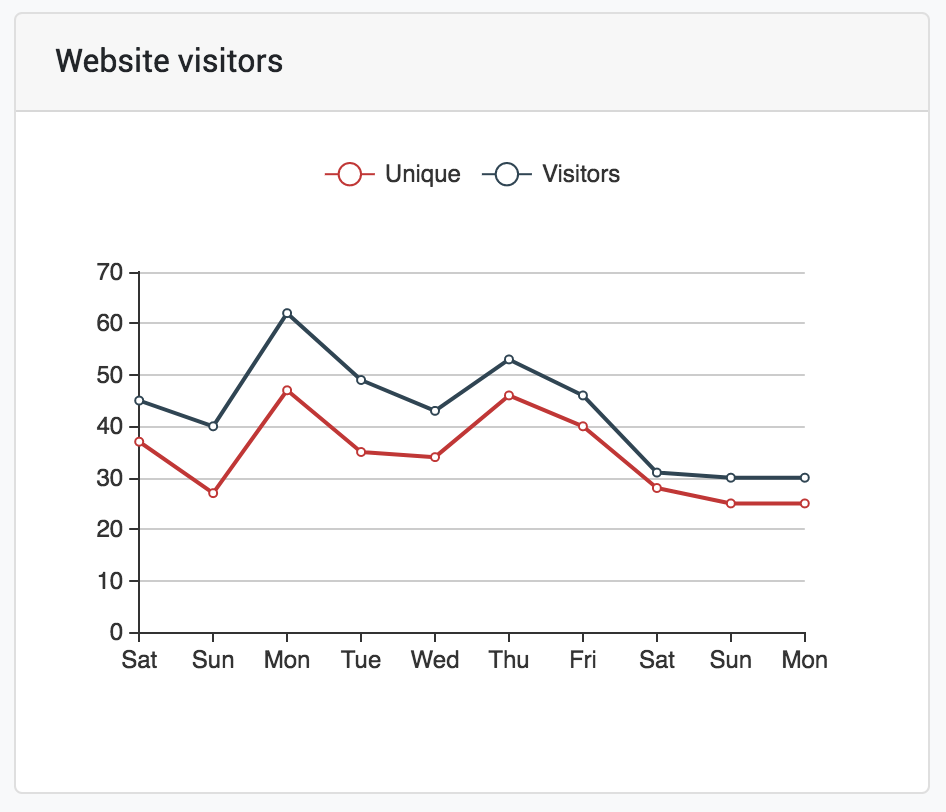LUYA Q1 2018
3 months ago we released LUYA version 1.0. Since then we have received a lot of positive feedback from developers around the world as well as requests for additions, improvements and bug fixes. Packagist notes more than 113'000 downloads and installs, including LUYA modules and extensions, and the project has received almost 500 stars on GitHub.
The LUYA future is headless
With the continuing development, we started to take LUYA into the direction of a headless system, which makes it rather unique among its kind. Headless systems will become more and more popular as they allow for lean, flexible and scalable applications that combine multiple specialized systems through their APIs.
The client library still need a lot of work, but they will get to the point where you can make a website without installing any dependencies by connecting to LUYA's headless client to retrieve menus, contents, properties or layouts. PSR6 compatible Caching will make the output blazingly fast! You won't have to deal with the application or the environment (e.g. get cms content and menu within your symfony application). Of course, collecting data from the built in or your own admin APIs is possible too.
We created a new API users endpoint which provides information about API access. You can test your endpoints and see what permissions are available:

In order to see what the API users (or any other admin users) have done, we have also built a more detailed user activity summary:

All these changes are available now in luya admin module in version 1.1.0. A new guide section about the headless features is under development: https://luya.io/guide/concept-headless
Dockerized LUYA kickstarter
We also have released the luya kickstarter in version 1.0.1 with a dockerized development environment, which is now an integral part of the kickstarter. Thanks to contributor rainerCH who did a fantastic job in bringing all these LUYA specific requests into one place. We will evolve the Docker environment and provide a single image on dockerhub in the future.
Development environments for extension and module developers
LUYA env dev repo for extension and module developers is finished. The main purpose for this repo is an easy way for developers to create and maintain their own modules and extensions. It is also a good way for contributors who would like to help improve luya core modules as it will auto clone all core modules and update these with a single command ./vendor/bin/luyadev repo/update.
As the repos are bound into the env dev application with PSR4, we have written a library which auto updates your composer.json so you can easily clone your own repos into the env dev like ./vendor/bin/luyadev repo/clone USERNAME/LUYA_MODULE_REPO_NAME which will then update your composer.json and run composer dump-autoload. Don't miss to take a look at this shiny and new dev env. if you are interested in the development of modules, extensions or contributions.
Overview of enhancements and new features
- A new user summary active window in the admin provides diff for changes inside ngrest tables.
- The configuration now includes security options like
luya\web\Application::$ensureSecureConnectionorluya\web\Composition::$allowedHosts. See the new guide about security in LUYA: https://luya.io/guide/app-security - The admin security has been improved with permissions.
- Admin and cms now have Chinese language support.
- The testsuite includes new test cases and helper methods.
- The error API was updated to provide a more detailed summary mail with application trace.
- The JSON-LD output was improved for SEO purposes
- Various fixes for PHP 7.2 compatibility
The remote admin provides an option to display the installed LUYA modules/extensions with their version numbers and info about whether they are current or outdated:

We added a Matomo Module (former Piwik) dashboard object to provide information about visits via API:

The LUYA composer plugin now provides a plugin list in the admin UI:

New LUYA based open source project
A new open source project is almost ready: a time tracking tool based on LUYA, Angular and Bootstrap 4. 
We want you!
We are looking for people who help us with
- Translations
- Documentation (guide and phpdoc)
- Module/extension development
If you are interested, please get into contact.
29 March 2018
LUYA developer team
luya.io